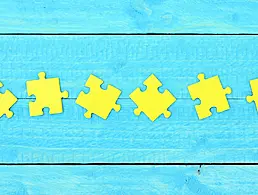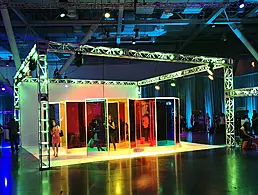We’ve spent the week exploring what the future of work will mean for employers and employees. Here are some of the highlights.
These are 3 of the most pervasive future of work myths
Let’s start with some mythbusting, because speculation on our working futures is replete with scaremongering and hype. Our Careers reporter, Eva Short, took three of the most common assumptions about the future of work and outlined why they fall flat under scrutiny.
How will AI change the workplace of the future?
Once she had dispensed with future of work myths, Short explored a new landscape for the modern workplace with the help of associate professor Owen Conlan and assistant professor Séamus Lawless, researchers at Science Foundation Ireland’s Adapt Centre.
Unpacking the gig economy is harder than you think
Another oft-discussed topic when it comes to how we will work in the future is the growth of the gig economy. There are a lot more layers than you might realise to this concept. Thankfully, Ellen Tannam helped us unpack them this week.
Is there such a thing as a steady, future-proof job?
The big question you’re probably asking about your place in the future of work is if you will have one. Colm Gorey went on a mission to find out which careers look set to have a long shelf life, but found that the reality isn’t shaping up to accommodate any one career that lasts forever. He did, however, find out what you’ll need to stay on top.
The future of work needs leaders with these skills
Leaders will also need to adapt to a changing workplace, and Cheryl Cran believes there are two core skills you need to be an effective leader in the future of work.
How to survive the future of work? Make ‘change’ your job
Our editor John Kennedy weighed in with his thoughts on what you need to be prepared for the future.
Reflecting on his experiences at HubSpot’s annual Inbound shindig in Boston, he advised that we needn’t fear machines – we need to fear becoming machines.
“You could say that the future of work will be about machines, AI, bots, all that jazz. But it is clear to me that the future of work will be about workers who feel valued and fully buy into an organisation’s vision and purpose,” writes Kennedy.
6 radical changes coming to the world of work
If all that hasn’t quite sated your thirst for reports from the future, check out my own crystal ball gazing into the major trends expected to shape the near future, such as universal basic income, a four-day work week and the threat of overworking.
‘I was allowed teach my class about quarks at 14’
Someone who already seems to be working in futuristic terms is Alice Selby. She’s working on a PhD at NUI Galway, developing memristors to work more like the human brain and make future devices incredibly powerful.
How virtual reality is breaking down barriers to education
Some workplaces of the future are bound to dabble in virtual reality, something David Whelan, founder and CEO of VR Education Holdings, knows all about. Whelan is also the multi-award-winning director and producer of Apollo 11 VR and Titanic VR, but his current focus is the development and deployment of an education and corporate training platform based on augmented and virtual reality, and accessible to all.
Being trans in tech: Why are we here, and where are we?
As well as our extensive Future of Work Week coverage, this week featured a guest column from an intern with the Inspirefest team, Karla O’Brien. Also a past Inspirefest speaker, O’Brien is studying computer science and had wondered why she found so many trans people working in tech. In her column, she asks if this is because of their experience exploring identity in an online world.




